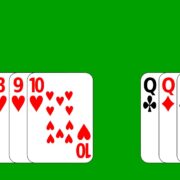
If you suffer from dental numbness, you may have a number of options. Some of these options include sedation, massage, Novocaine, and reversal injections. Read on to discover which one is best for you. Listed below are some exercises that may reduce sensitivity. These exercises can help you avoid pain and discomfort, and will improve your overall dental health. Also, remember to get adequate sleep.
Novocaine
While many people do not mind getting their mouths numbed before having dental procedures, some patients experience anxiety and fear about getting their teeth cleaned. The numbing agent affects the nerves by blocking them so there is no sensation at all. Depending on the dentist and the procedure, a patient will be numbed for a short period of time, or they may be completely unconscious for the duration of the procedure.
Using Novocaine for dental numbness is effective, but not as fast as you may think. It works quickly, causing a loss of sensation in the affected area. Afterwards, you should no longer feel any pain, but you may feel pressure or movement around the treated area. After a few hours, you will likely regain some feeling in your tooth, lips, and tongue. However, there are several side effects of using Novocaine for dental numbness.
Sedation
Although sedation for dental numbness can be an effective treatment for patients who are afraid of the dentist, the risks involved with it are usually lower than those associated with general anesthesia. However, general anesthesia is a better option for patients with certain health conditions, such as a severe gag reflex or difficulty opening the mouth. While sedation is considered safe, it can cause some adverse side effects, including headaches and dizziness.
Sedation for dental numbness has two main types. The first is moderate sedation, which makes patients feel drowsy during the dental procedure. Another type of sedation, called deep sedation, is considered more serious. Under this type of sedation, the patient will be asleep and may even forget what just happened. The sedation used during oral sedation is typically administered with nitrous oxide to further relax the patient.
Reversal injections
Reversal injections for dental numbness can help patients regain normal feeling in their mouths faster. These injections work by reversing the effects of local anesthesia, so they can restore normal sensation faster than natural wear-off. Using OraVerse, an FDA-approved reversal agent, can help patients recover normal feeling in less than an hour.
This reversal treatment is made possible with OraVerse, a safe form of phentolamine mesylate. This drug has been used in numerous medical settings for more than fifty years, and the OraVerse Injection is the first proven safe product of its kind. It can help patients regain normal feeling after dental procedures, and the procedure can be completed in a short period of time.
Massage
Although regular visits to the dentist are necessary for proper alignment of the teeth, you may want to reduce the effects of dental numbness faster. You can take a nap after the dental treatment to help the numbness go away faster. It is also possible to try light physical activity to help you recover faster from the dental procedure. It is important to consult with your dentist first, however, about whether you should perform this activity after your appointment.
After a dental procedure, you may experience numbness in the mouth and face. If the pain lasts longer than a day, contact your dentist to determine if your condition is related to an anesthesia. However, most people only experience numbness for a few hours or so after dental treatment. If you experience any unusual symptoms, you should contact your dentist immediately. Massage is also a good way to relax and promote blood flow. The continued circulation of blood is essential for healing.
Exercise
Before you begin exercising for dental numbness, you should consult with your dentist to determine if physical activity is safe for you after the procedure. Physical activity helps increase circulation and helps the anesthetic wear off faster. However, if you are numb, you should consult with your dentist to see if you should resume exercise right after your dental procedure. If you’re still in pain, you should rest and take a nap to allow the numbness to subside.
Physical activity may help the numbness disappear faster. However, you should consult your dentist before engaging in strenuous activities such as running, swimming, or cycling. In addition to physical activity, you can apply heat to the affected area to increase the blood flow and make the novocaine wear off faster. However, it’s important to remember that physical activity should be avoided before the procedure. For best results, contact Cherrywood Dental Associates immediately after the procedure to discuss any risks involved with exercise.











